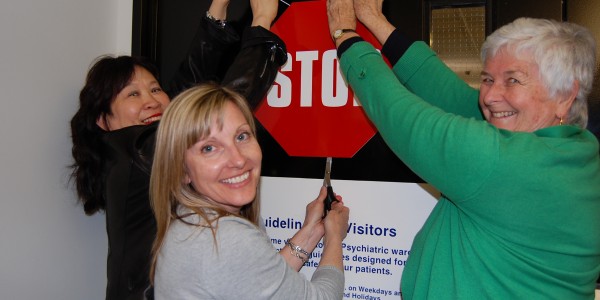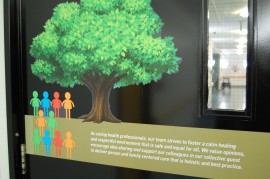Focusing on the person, family in Richmond MH&A
Late last year, VCH-Richmond Mental Health & Addiction Services invited the Institute for Patient and Family-Centered Care (IPFCC) to undertake a site assessment and review of local services.
The institute visited Richmond MH&A programs, met with staff, clients and families, reviewed policies and client and family materials and, with this information, provided feedback and recommendations for how to advance the practice of person- and family-centred care across the MH&A continuum.
“Although many patient- and family-centred initiatives were already underway within Richmond MH&A, the institute’s assessment was that we could do more to include clients and their families in their care,” said Richmond Mental Health & Addictions manager Lisa Ramage.
Building on the roadmap that the institute provided, Richmond MH&A is now implementing changes to promote and develop a more person- and family-centered care environment.
VCH Richmond is undertaking this work in collaboration with the MH&A Family Advisory Council (FAC), persons with lived experience of mental illness and addiction, and the Richmond Hospital Foundation.
Launched with a quick win
The first step toward implementing the institute’s recommendations was the removal of the large, red STOP sign at the entry to 2West earlier this summer.
“The stop sign was definitely not patient and family-centered,” said Ramage. “The new signage is much more inviting, and reflects the unit’s philosophy of caring and recovery.”
When fully implemented, by late 2017, the recommendations will help create a culture that:
- Consistently views clients and families as essential members of the health care team and as partners for improving quality, safety, and the experience of care.
- Encourages and supports these partnerships, as well as collaboration within and across disciplines and departments.
- Embeds the person- and family-centred philosophy across Richmond MHA services, inclusive of community partners.
“We’re excited about this initiative,” said Natalie McCarthy, director, Richmond MH&A. “We know from the institute’s report that we have many strengths – from our engaged, committed clinicians and physicians to local collaborative community models, such as the Supporting Families Program. We’ve also learned that there are many opportunities to improve our care practices, processes and physical spaces that we have yet to explore. Ultimately, we want clients and families to feel welcomed, as partners in the care and recovery process, and also in the growth and development of the mental health and addiction services.”


